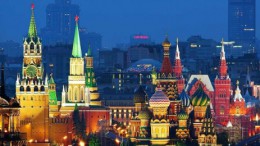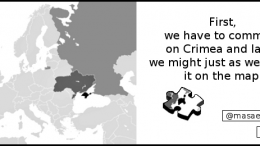Russia, an Italy with 8,500 atomic bombs
WASHINGTON | By Pablo Pardo | According to the IMF, Russia and Italy have about the same nominal GDP, though, if you adjust it to its purchase parity power, the Russian economy may be 50% greater than Italian. Still, Russia has two and a half times the population of Italy, which explains why its nominal GDP per capita is half of Spain’s (even in real terms, Spaniards are 60 percent richer than Russians). So, Vladimir Putin has managed to achieve for its country a global importance that, taking its economy into account, it does not deserve.






